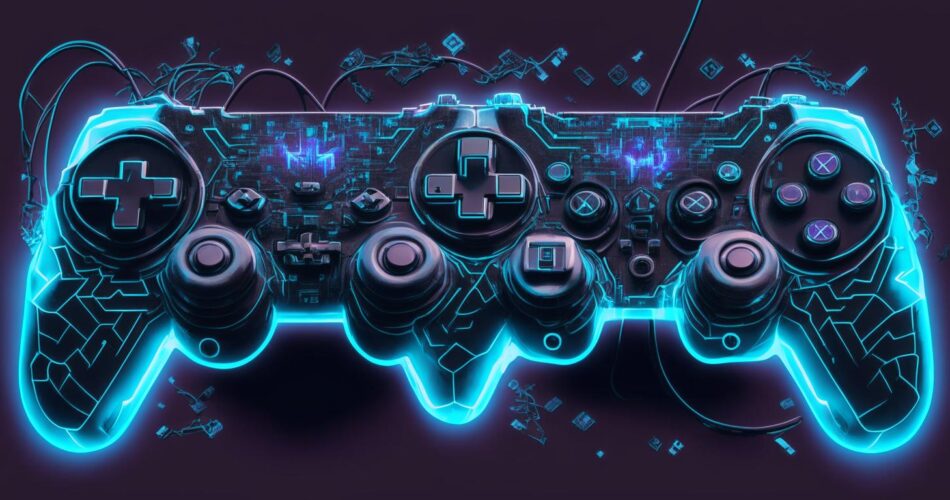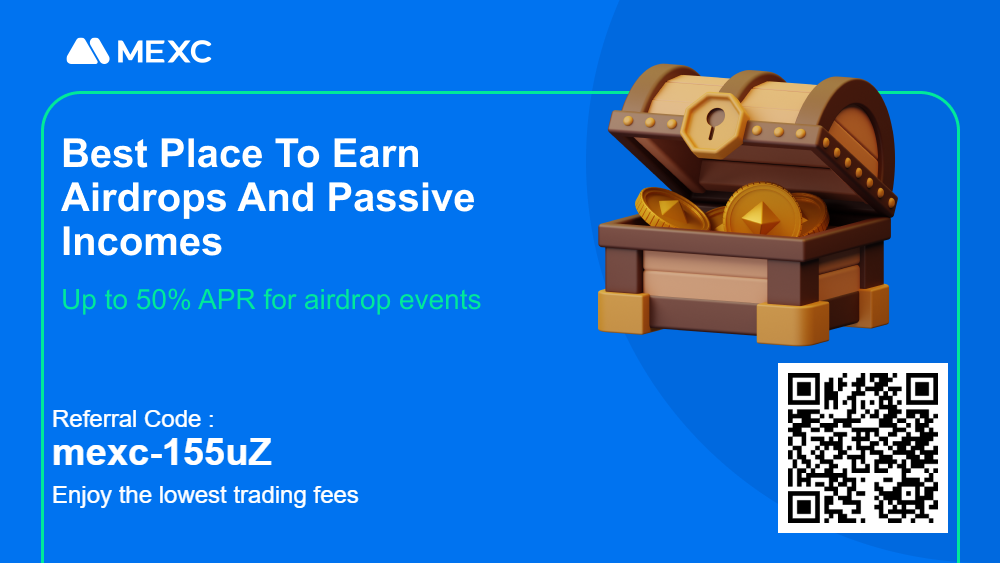In the ever-evolving landscape of gaming, blockchain games have emerged as a groundbreaking trend, merging the worlds of gaming and decentralized technology. But what exactly are blockchain games, and why are they causing such a stir in the gaming community? Let’s embark on a journey to uncover the magic behind these games and the future they promise.
Table of Contents
What are Blockchain Games?
Blockchain Games Meaning
Blockchain games, a term that has been buzzing in the gaming community, represent a fusion of gaming with the revolutionary technology of blockchain. But to truly grasp the essence and potential of these games, it’s essential to dive deeper into their core components and understand what sets them apart.
The Core Concept: Merging Gaming with Decentralized Technology
At its heart, a blockchain game utilizes blockchain technology as an integral part of its infrastructure. Unlike traditional games where data is stored on centralized servers, blockchain games store game data on a decentralized ledger. This means that every in-game action, be it a character upgrade, asset acquisition, or a battle victory, can be recorded on the blockchain, ensuring transparency and immutability.
Beyond Just Playing: True Digital Ownership
One of the standout features of blockchain games is the concept of true digital ownership. In traditional games, players “own” their in-game assets only within the confines of the game. However, in blockchain games, assets like weapons, characters, or land are often tokenized as Non-Fungible Tokens (NFTs). These NFTs represent unique digital items that players genuinely own, allowing them to trade, sell, or even showcase them outside the game environment.
Decentralization: Power to the Players
Blockchain games often operate on a decentralized model, which means that the game’s decision-making process can be more democratic. Players can have a say in game developments, rule changes, or even in governing the game’s ecosystem. This decentralization fosters a sense of community and gives players a stake in the game’s future, far beyond just playing.
Monetization and Real-World Value
Another groundbreaking aspect of blockchain games is the potential for real-world monetization. Players can earn in-game tokens or assets, which can often be traded for real-world currency or other digital assets. This play-to-earn model transforms gaming from a mere recreational activity to a potential source of income.
History of Blockchain Gaming
The history of blockchain gaming is a tale of innovation, challenges, and the relentless pursuit of merging two powerful domains: gaming and blockchain technology. Let’s delve deeper into this fascinating journey.
The Genesis: Early Experiments
The inception of blockchain gaming can be traced back to the early days of cryptocurrencies. Around 2013-2014, developers began toying with the idea of integrating gaming with the decentralized ledger system. These initial attempts were rudimentary, often limited to simple gambling games or basic token-based games on the Bitcoin blockchain.
The CryptoKitties Phenomenon
In 2017, the world witnessed the explosive popularity of CryptoKitties, a game where players could buy, sell, and breed virtual cats. Each CryptoKitty was a unique NFT (Non-Fungible Token) on the Ethereum blockchain. The game’s success was unprecedented, with some kitties selling for over $100,000. This was a pivotal moment, signaling the vast potential of blockchain in the gaming industry. It also highlighted the challenges, as the Ethereum network faced significant congestion due to the game’s popularity.
The Rise of Decentralized Gaming Platforms
Post-CryptoKitties, there was a surge in interest in blockchain gaming. New platforms like TRON, EOS, and Binance Smart Chain started to emerge, each offering tools and infrastructure for developers to create more sophisticated games. Games like “Decentraland” allowed players to buy, develop, and sell parcels of virtual real estate. “The Sandbox” offered a virtual world where players could own, create, and monetize their gaming experiences.
Play-to-Earn: A New Gaming Model
One of the most transformative impacts of blockchain on gaming has been the “play-to-earn” model. Games like “Axie Infinity” allowed players to earn tokens by playing, which could then be traded for real-world currency. This model turned traditional gaming on its head, where players typically spend money on in-game assets, but those assets have no real-world value. In the blockchain gaming world, players could now be rewarded for their skills, time, and investment.
Challenges and Setbacks
While the journey has been promising, it hasn’t been without challenges. Scalability issues, high transaction fees, and environmental concerns due to energy-intensive proof-of-work mechanisms have been significant hurdles. Additionally, the rapid rise in NFT and token values led to concerns about speculative bubbles.
Towards a Decentralized Future
As we move forward, the integration of blockchain in gaming is becoming more refined. With the advent of Layer 2 solutions, sidechains, and more energy-efficient consensus mechanisms, many of the early challenges are being addressed. The gaming community’s interest in blockchain is evident from the increasing number of mainstream gaming companies exploring blockchain integration.
Top Blockchain Games in the Market
Blockchain gaming has seen a meteoric rise in recent years, with numerous games leveraging the power of decentralized technology to offer players unique experiences and the potential to earn real-world rewards. Here’s a detailed chart of the top blockchain games in 2023:
| Rank | Game Name | Description | Key Features | Token/Currency |
|---|---|---|---|---|
| 1 | Aviator | A game of nerve where players decide when to cash out their earnings. | Simple gameplay, Provably fair results, Available on Lucky Block casino | Not Specified |
| 2 | Plinko | A board game where players drop balls to earn rewards or bet multipliers. | Based on traditional Pachinko, Multiple versions available | Not Specified |
| 3 | Tamadoge | An arcade gaming ecosystem with NFT collections representing virtual pets. | NFT battles, Multiple games, Earn TAMA tokens | TAMA |
| 4 | Chimpzee | A game focused on environmental protection where players fight forest poachers. | Earn $CHMPZ tokens, NFT passports, Stake NFTs for passive income | $CHMPZ |
| 5 | Pikamoon | A metaverse ecosystem where players can participate in online tournaments with their NFT avatars. | Pikaverse exploration, Earn $PIKA tokens, 18,012 NFTs available | $PIKA |
| 6 | Ecoterra | A platform that incentivizes users to combat climate change through gamification. | Recycle2Earn mechanism, Earn Ecoterra tokens, Carbon offset marketplace | Not Specified |
| 7 | Decentraland | A virtual world where users can develop and monetize their virtual real estate. | Host virtual events, Earn MANA tokens, Virtual land trading | MANA |
| 8 | Axie Infinity | A game where players breed, battle, and trade virtual creatures called Axies. | Turn-based strategy, Earn SLP tokens, Virtual monster battles | AXS, SLP |
| 9 | The Sandbox | A decentralized virtual world emphasizing user-generated content. | Create, share, and monetize game content, NFT-based assets | SAND |
| 10 | Illuvium | A game universe with exploration games where players capture and train creatures called Illuvials. | Over 150 Illuvials, Earn ILV tokens, Interoperable blockchain game | ILV |
| 11 | Splinterlands | A collectible card game where players collect and battle digital monsters. | Earn DEC tokens, NFT card battles, Community governance with SPS tokens | DEC, SPS |
| 12 | Floki | A metaverse called Valhalla where players create NFT characters and engage in various activities. | On-chain raiding, farming, battles, Earn FLOKI tokens | FLOKI |
| 13 | Mobox | A platform that combines DeFi with NFTs, offering a range of crypto games for mobile devices. | Mint MOMO NFTs by staking MBOX, Earn rewards in games, NFT marketplace | MBOX |
| 14 | Nakamoto | A game studio on the Polygon network offering both in-house and third-party games. | Diverse selection of games, Earn NAKA tokens through gameplay, Stake NAKA tokens for passive income | NAKA |
These games represent the pinnacle of blockchain gaming in 2023, offering players not just entertainment but also the potential for real-world earnings. Whether you’re a casual gamer or a hardcore crypto enthusiast, there’s something in this list for everyone. As the blockchain gaming industry continues to evolve, we can expect even more innovative and exciting games to emerge in the coming years.
How Do Blockchain Games Work?
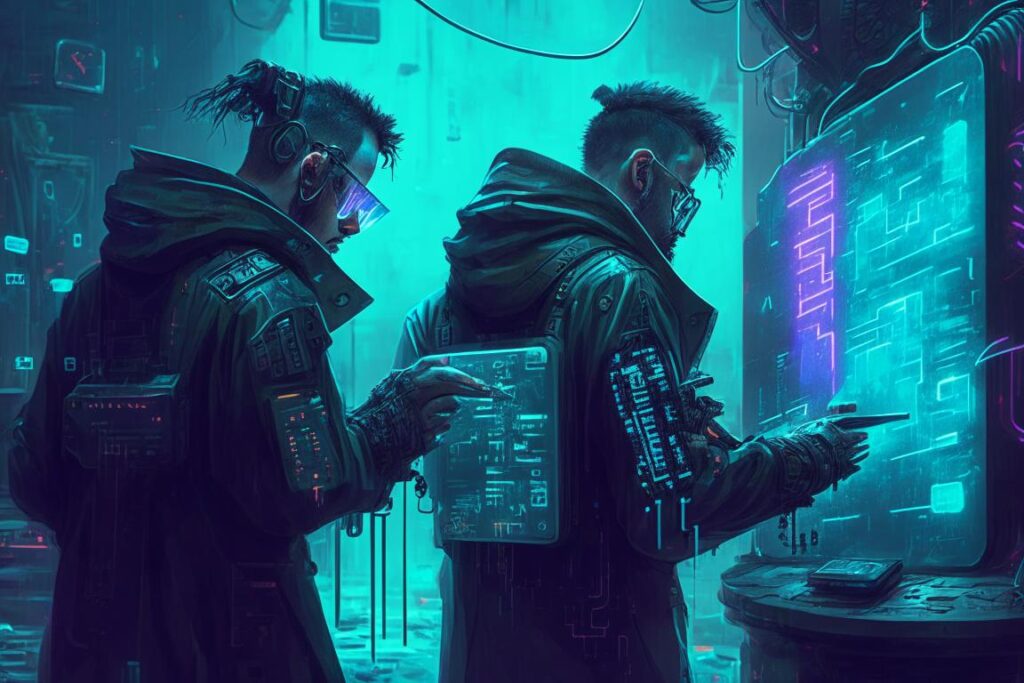
Blockchain games, often referred to as decentralized games or crypto games, represent a new paradigm in the gaming industry. They integrate blockchain technology into their core mechanics, offering a unique blend of entertainment, economics, and ownership. But how exactly do these games function? Let’s delve into the intricacies of blockchain games:
1. Decentralized Ownership
- True Ownership: In traditional games, any in-game assets you acquire (like skins, weapons, or characters) are essentially licensed to you by the game developer. In contrast, blockchain games provide players with true ownership of their in-game assets. These assets are represented as non-fungible tokens (NFTs) on the blockchain.
- Trade and Sell: Because you have genuine ownership of these NFTs, you can trade, sell, or even lease them on various marketplaces. This creates a secondary economy where players can monetize their in-game achievements.
2. Smart Contracts and Game Logic
- Immutable Rules: The rules of the game are often encoded in smart contracts on the blockchain. This ensures that the game operates transparently and cannot be altered without consensus.
- Automated Transactions: Smart contracts can automatically execute transactions when certain conditions are met. For instance, if you win a battle, a smart contract might automatically transfer a reward to your account.
3. Play-to-Earn Model
- Earning Potential: Unlike traditional games where players spend money on in-app purchases, blockchain games often allow players to earn cryptocurrency or other blockchain assets through gameplay.
- Monetizing Skills: Skilled players can earn significant amounts by excelling in the game, discovering rare items, or leveraging the game’s economy.
4. Interoperability
- Cross-Game Usage: One of the revolutionary aspects of blockchain games is the potential for asset interoperability. An NFT acquired in one game might be usable in another. This is possible because the assets exist on a shared blockchain rather than being confined to a single game’s ecosystem.
- Shared Universes: Some blockchain games collaborate to create shared universes or metaverses, where assets and characters from one game can be used or have relevance in another.
5. Decentralized Governance
- Player Influence: Many blockchain games have governance tokens that give players a say in the game’s development, mechanics, or economic policies. This fosters a community-driven approach where players have a genuine stake in the game’s future.
- Voting and Proposals: Players can propose changes or vote on proposals, ensuring that the game evolves in a direction that the community supports.
6. Security and Transparency
- Transparent Operations: All transactions and major game events are recorded on the blockchain, ensuring transparency. Players can verify transactions, ensuring fairness and trustworthiness.
- Secure Assets: Since in-game assets are stored on the blockchain, they are secure from hacks or unauthorized alterations. Players have full control over their assets, provided they maintain the security of their private keys.
Benefits of Blockchain in Gaming
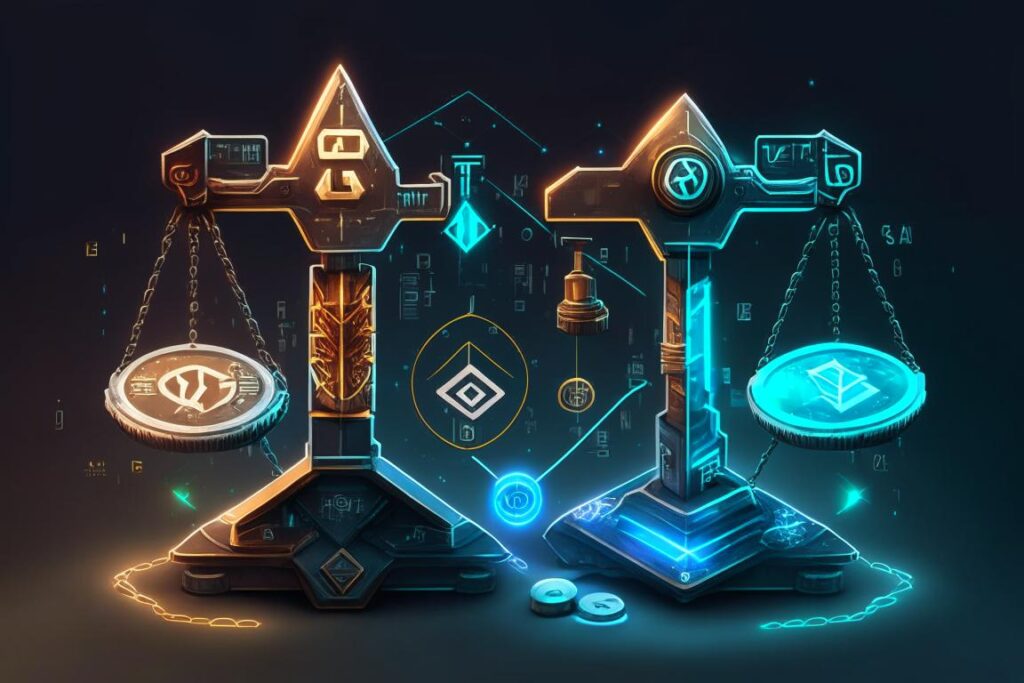
The integration of blockchain technology into the gaming industry has ushered in a new era of possibilities, transforming the way games are developed, played, and monetized. The decentralized nature of blockchain offers a plethora of benefits that address many of the longstanding issues in the gaming world. Let’s explore the myriad advantages that blockchain brings to the gaming table:
1. True Digital Ownership
- Genuine Asset Ownership: In traditional gaming, players often “rent” digital assets, meaning they don’t truly own them. With blockchain, in-game assets like weapons, skins, or characters are tokenized as non-fungible tokens (NFTs), granting players genuine ownership.
- Monetization Opportunities: Players can trade, sell, or auction their NFTs in various marketplaces, turning their gaming achievements into real-world profits.
2. Play-to-Earn Mechanism
- Earning While Playing: Blockchain games often reward players with cryptocurrency or other blockchain assets for their in-game activities, achievements, or contributions.
- Empowering Players: This model shifts the dynamics, allowing players to potentially earn a living from their gaming skills and strategies.
3. Transparency and Fairness
- Immutable Game Logic: Game rules and mechanics encoded in smart contracts are transparent and cannot be changed without consensus, ensuring fairness.
- Verifiable Outcomes: Players can verify game outcomes, transaction histories, and other in-game events on the blockchain, fostering trust in the game’s operations.
4. Enhanced Security
- Tamper-Proof: The decentralized nature of blockchain ensures that in-game assets and player data are secure from hacks, unauthorized alterations, or server shutdowns.
- Controlled Access: Players have full control over their digital assets and game accounts, provided they maintain the security of their private keys.
5. Interoperability
- Cross-Game Integration: Assets acquired in one blockchain game can potentially be used in another, allowing for shared universes and cross-game narratives.
- Unified Gaming Ecosystems: Players can have a consistent identity or avatar across multiple games, enhancing the gaming experience.
6. Decentralized Governance
- Player Empowerment: Many blockchain games offer governance tokens, allowing players to have a say in game updates, economic policies, or future developments.
- Community-Driven Evolution: Games can evolve based on player feedback and voting, ensuring they remain relevant and aligned with player preferences.
7. Reduced Fraud and Counterfeiting
- Authentic Transactions: The transparent nature of blockchain ensures that all transactions are genuine, reducing the chances of fraud.
- Unique Asset Verification: NFTs ensure that in-game assets are unique and authentic, eliminating issues related to counterfeiting or duplication.
8. Global and Inclusive Economies
- Borderless Transactions: Blockchain games can be played globally, with players engaging in transactions without the constraints of traditional banking systems or currency conversions.
- Inclusive Participation: Players from regions without access to traditional banking systems can participate, earn, and transact in the blockchain gaming ecosystem.
Challenges and Concerns
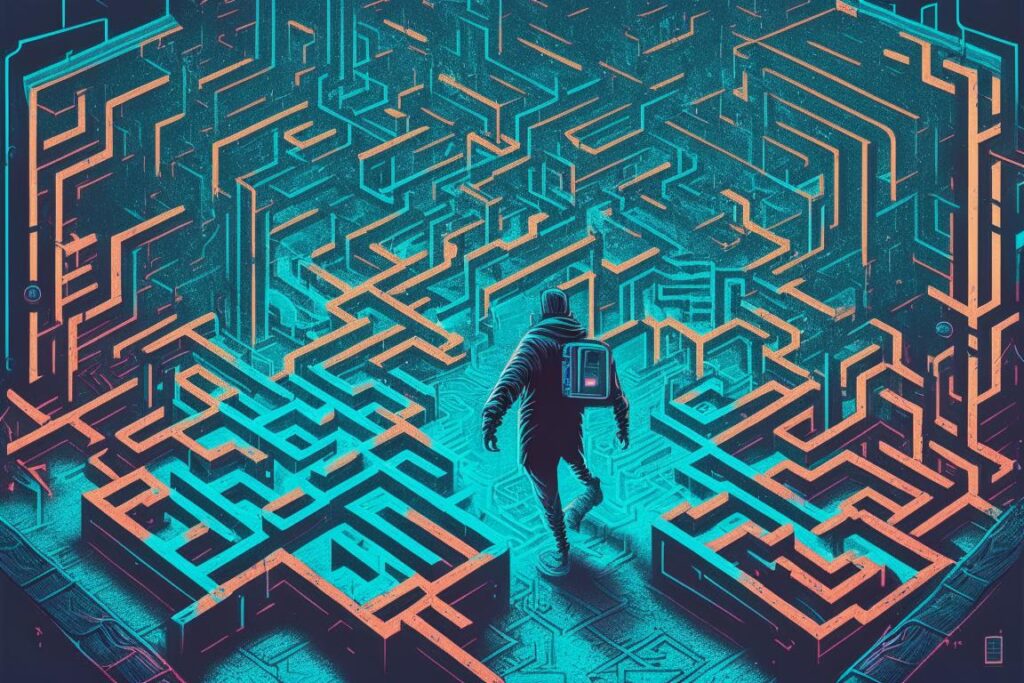
While blockchain gaming has introduced a plethora of innovations and opportunities to the gaming industry, it’s not without its set of challenges and concerns. As with any emerging technology, there are teething issues, uncertainties, and potential pitfalls that need to be addressed for the sector to reach its full potential. Let’s delve into the primary challenges and concerns surrounding blockchain gaming:
1. Scalability Issues
- Network Congestion: Popular blockchain games can lead to a surge in transactions, causing network congestion. This was evident with the rise of CryptoKitties in 2017, which significantly slowed down the Ethereum network.
- High Transaction Fees: During times of network congestion, transaction fees can skyrocket, making it costly for players to perform in-game actions or trade assets.
2. Environmental Concerns
- Energy Consumption: Proof-of-work blockchains, like Bitcoin and Ethereum, require significant computational power, leading to concerns about their carbon footprint and sustainability.
- Transition to Greener Alternatives: While many blockchains are moving towards more energy-efficient consensus mechanisms like proof-of-stake, the transition is ongoing and not without its challenges.
3. Regulatory and Legal Challenges
- Undefined Legal Status: The legal status of in-game assets, cryptocurrency earnings, and NFTs remains a gray area in many jurisdictions.
- Tax Implications: Players earning real-world value from games may face tax liabilities, but the specifics can be unclear and vary by region.
4. Market Volatility
- Fluctuating Asset Value: The value of in-game assets and cryptocurrencies can be highly volatile, leading to uncertainties for players regarding the real-world value of their holdings.
- Speculative Bubbles: The hype around certain games or NFTs can lead to speculative bubbles, where assets become overvalued and can crash suddenly.
5. Interoperability Limitations
- Cross-Chain Challenges: While the idea of using an asset from one game in another is appealing, achieving this cross-chain interoperability remains technically challenging.
- Standardization: Different games and platforms might use different standards for their NFTs, making seamless integration difficult.
6. Security Concerns
- Smart Contract Vulnerabilities: If a game’s smart contract has vulnerabilities, it could be exploited, leading to loss of assets or other issues.
- Phishing and Scams: As with any valuable digital asset, there’s a risk of phishing attacks, scams, or players being tricked into buying counterfeit or non-existent assets.
7. Adoption and Usability
- Learning Curve: For many players, the world of blockchain, wallets, private keys, and cryptocurrencies can be daunting, potentially hindering widespread adoption.
- User Experience: Ensuring a smooth user experience, comparable to traditional gaming, while integrating blockchain mechanics remains a challenge for developers.
8. Economic Imbalances
- Play-to-Earn Sustainability: The sustainability of the play-to-earn model is still under scrutiny. There are concerns about how long games can continue to offer real-world earnings without economic imbalances or inflation.
- Overemphasis on Monetization: The focus on earning could overshadow gameplay, leading to games that prioritize monetization over fun or engaging content. This could result in a gaming landscape where the primary motivation for players is profit rather than enjoyment or challenge. Such a shift could dilute the essence of gaming, turning it into a mere marketplace rather than an avenue for creativity, storytelling, and skill.
9. Centralization Paradox
- Contradictory Models: While blockchain stands for decentralization, some blockchain games are developed and controlled by centralized entities. This can lead to conflicts in decision-making, updates, and game direction, potentially undermining the decentralized ethos.
- Power Dynamics: If a few influential players or entities hold a significant portion of in-game assets or governance tokens, it could lead to unequal power dynamics, with these major stakeholders having disproportionate influence over the game’s direction.
10. Technical Barriers
- Complexity for Developers: Building on blockchain requires a new set of skills and understanding. Developers need to be well-versed in smart contract programming, security considerations, and the nuances of decentralized systems.
- User Onboarding: For non-tech-savvy players, understanding concepts like digital wallets, private keys, gas fees, and token transactions can be overwhelming. Simplifying this onboarding process is crucial for mainstream adoption.
11. Economic Inequalities
- Barrier to Entry: As the value of in-game assets and NFTs rises, new players might find it prohibitively expensive to start playing, especially in games where initial assets or “starter packs” have become highly valued.
- Wealth Disparities: If early adopters or wealthy players can significantly influence the game’s economy, it could lead to disparities where new or casual players find it challenging to compete or progress.
The Future of Blockchain Gaming
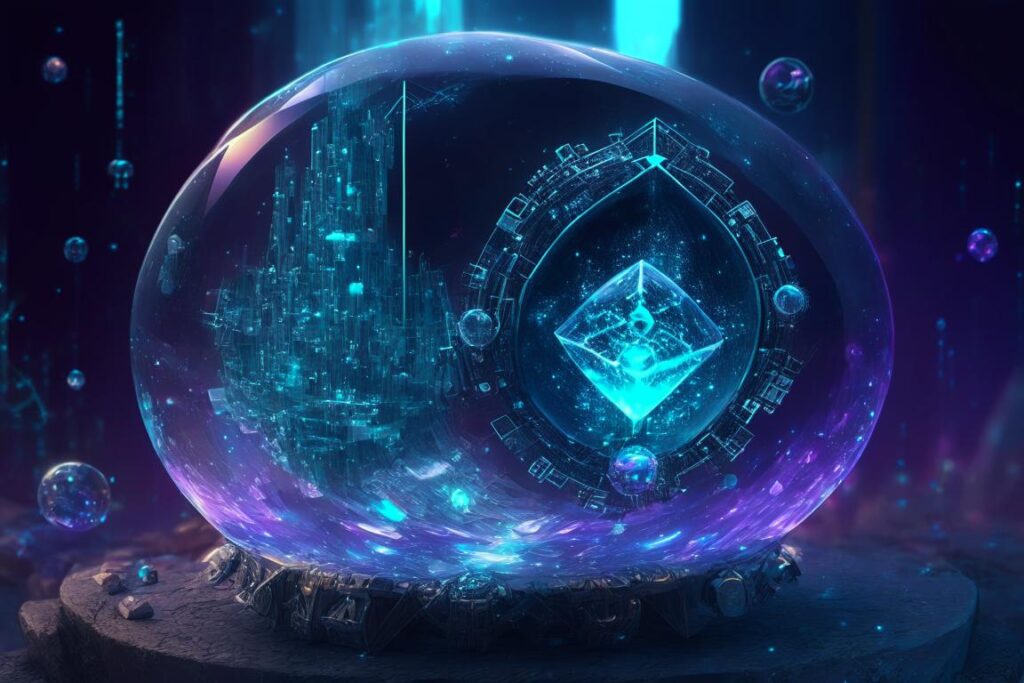
Blockchain gaming, while still in its nascent stages, has already showcased its potential to revolutionize the gaming industry. As the technology matures and more players and developers embrace its capabilities, the future landscape of blockchain gaming is set to be both dynamic and transformative. Let’s explore the potential trajectories and innovations that lie ahead:
1. Metaverse Expansion
- Virtual Realities: The concept of the metaverse, a collective virtual shared space created by converging virtually enhanced physical reality and interactive digital spaces, is gaining traction. Blockchain gaming will play a pivotal role in shaping these expansive digital universes, where players can interact, socialize, trade, and even work.
- Interconnected Gaming Worlds: Imagine seamlessly transitioning from one game to another, carrying over assets, achievements, and even game narratives. The metaverse could allow for such interconnected gaming experiences.
2. Mainstream Adoption
- Bigger Player Base: As blockchain gaming becomes more user-friendly and accessible, a larger segment of the global gaming community will likely embrace it, leading to a significant increase in the player base.
- Major Studios Entering the Fray: Recognizing the potential of blockchain, major gaming studios and developers might start integrating blockchain elements into their titles or launching entirely new blockchain-based games.
3. Advanced Play-to-Earn Models
- Diverse Earning Mechanisms: Beyond the current play-to-earn models, future games might introduce more intricate economic systems, allowing players to earn through various roles like game developers, virtual real estate agents, or even as in-game event organizers.
- Sustainable Ecosystems: Developers will focus on creating balanced in-game economies to ensure long-term sustainability and prevent inflation or asset devaluation.
4. Enhanced Interoperability
- Cross-Chain Gaming: With advancements in cross-chain technology, players might be able to use assets and tokens seamlessly across games built on different blockchains.
- Standardized NFTs: The industry might move towards standardized NFT protocols, ensuring smoother integration and interaction of assets across various games and platforms.
5. Focus on User Experience
- Simplified Onboarding: To attract the mainstream gaming audience, blockchain games will likely prioritize simplifying the onboarding process, making it easier for players to understand and engage with blockchain elements.
- High-Quality Game Design: The emphasis will shift from purely monetization-driven games to titles that offer compelling narratives, high-quality graphics, and engaging gameplay, all enhanced by blockchain features.
6. Regulatory Clarity and Evolution
- Defined Legal Frameworks: As blockchain gaming grows, regulatory bodies worldwide will likely develop clearer frameworks and guidelines, addressing issues related to asset ownership, taxation, and player rights.
- Consumer Protection: Regulatory measures will also focus on protecting players from potential scams, frauds, and ensuring fairness in play-to-earn mechanisms.
7. Innovative Gaming Genres
- Beyond Current Genres: The fusion of gaming and blockchain will give birth to entirely new genres and gaming experiences, pushing the boundaries of what’s possible in interactive entertainment.
- Educational and Real-World Integration: Future games might seamlessly blend educational content, real-world events, and gaming, offering players both entertainment and knowledge.
Conclusion
The realm of blockchain gaming stands at the intersection of innovation, entertainment, and economic empowerment. As we’ve journeyed through its evolution, benefits, challenges, and potential future, it’s evident that this fusion of gaming and decentralized technology is not just a fleeting trend but a transformative force in the digital entertainment landscape.
Blockchain gaming challenges the traditional norms of the gaming industry. It offers players true ownership of their in-game assets, introduces novel monetization avenues, and fosters a sense of community and shared governance. While the challenges are real, ranging from scalability issues to regulatory uncertainties, they also represent opportunities for growth, refinement, and innovation.
Looking ahead, the potential of blockchain gaming is vast. The emergence of interconnected virtual worlds, advanced play-to-earn models, and the blending of gaming with real-world applications are just the tip of the iceberg. As technology advances and the global gaming community becomes more attuned to the possibilities of blockchain, we can anticipate a future where games are not just platforms for entertainment but also avenues for learning, social interaction, and economic opportunity.
In essence, blockchain gaming is reshaping the narrative of digital play. It’s a testament to the limitless potential that arises when technology, creativity, and community converge. As players, developers, and stakeholders, the onus is on us to nurture this ecosystem, ensuring that it evolves in a manner that is inclusive, fair, and truly revolutionary. The future of gaming is decentralized, and it promises a journey as exciting as the games themselves.
FAQs
How to play blockchain games?
To play blockchain games, players typically need a digital wallet to manage in-game assets and cryptocurrencies. After setting up a wallet, they can join the game, acquire assets, and participate in the game’s ecosystem, often with opportunities to earn real-world value.
How do blockchain games make money?
Blockchain games make money through various means, including the sale of in-game assets (NFTs), transaction fees, play-to-earn models where players can spend to enhance their earning potential, and traditional methods like in-game purchases and advertising.
How many video games are there that use blockchain?
The exact number of blockchain games is continually changing as the industry evolves. There are hundreds of blockchain games in various stages of development, with more being announced regularly.
How can blockchain change games?
Blockchain can revolutionize gaming by providing true digital ownership of in-game assets, introducing play-to-earn models, ensuring transparency and fairness through smart contracts, enabling cross-game interoperability, and fostering decentralized, community-driven game development and governance.
